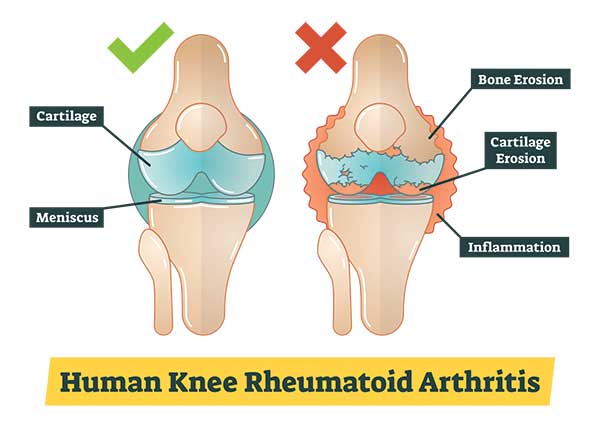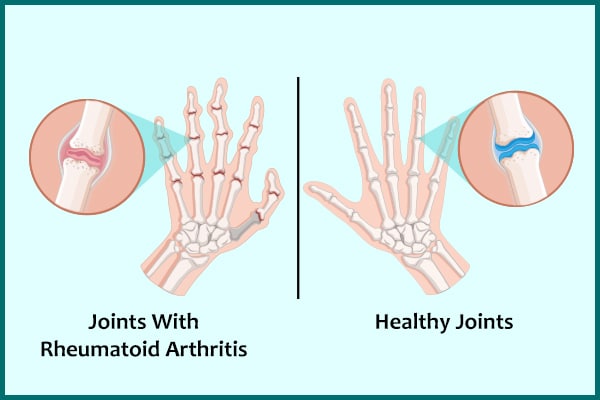Inflammatory conditions – Rheumatoid Arthritis
There are many different types of inflammatory conditions – rheumatoid, spondyloarthritis, gout, ankylosing spondylitis, sjogrens, lupus and more. Each of these conditions have different symptoms and effects on the body which can be widespread and affect not just the joints – but eyes, organs, digestion, skin and nails as well.
Inflammatory conditions can occur because the body’s immune system is incorrectly attacking the body’s own cells. Rheumatoid arthritis mostly affects the synovial linings of the small joints of the body (hands, fingers and toes) but can also affect the spine. Joints become red, swollen and sore to move and can greatly affect grip strength and hand dexterity which greatly impacts quality of life.
Later on in the disease pathway it can also affect the heart, and cardiovascular system as it does make blood thicker, which over time can cause damage to blood vessels. It is very important to see a health professional if you suspect you have rheumatoid arthritis.
Characteristic signs are stiffness in the morning lasting longer than 30 minutes, back or joint or hand/finger/toe pains. Red or hot swelling joints and difficulty sleeping in he second half of the night (needing to toss and turn and mobilise the joints for some time before being able to go back to sleep).

So what should I do?
Physiotherapy and exercise physiologists will help to diagnose, refer onto GP/specialist for further management. It is important to be referred early. In the UK there is an average 8.5 year gap from onset of symptoms to diagnosis. This is far too long and rheumatoid arthritis can already be damaging joints irreversibly.
If you do suspect you could have an inflammatory condition and want to see physiotherapy to improve your grip and joint strength, flexibility and cardiovascular health book in with us today.
We can help answer any questions you may have, provide some relief and recommend next steps.
Written by Jonathan Khoo
Movement Mill Physiotherapy
Meadowbank


